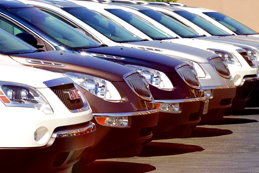Auto Defaults Are Soaring
![]() Print this Article | Send to Colleague
Print this Article | Send to Colleague
 As reported by Bloomberg.com, a decade after the mortgage debacle, the financial industry has embraced another type of subprime debt: auto loans. Like last time, the risks are spreading as they’re bundled into securities for investors worldwide. Since the Great Recession, business has exploded. In 2009, $2.5 billion of new subprime auto bonds were sold. In 2016, $26 billion were, topping average pre-crisis levels, according to Wells Fargo & Co.
As reported by Bloomberg.com, a decade after the mortgage debacle, the financial industry has embraced another type of subprime debt: auto loans. Like last time, the risks are spreading as they’re bundled into securities for investors worldwide. Since the Great Recession, business has exploded. In 2009, $2.5 billion of new subprime auto bonds were sold. In 2016, $26 billion were, topping average pre-crisis levels, according to Wells Fargo & Co.Few things capture this phenomenon like the partnership between Fiat Chrysler Automobiles NV and Banco Santander SA. Since 2013, as U.S. car sales soared, the two have built one of the industry’s most powerful subprime machines.
Reid Bigland, Chrysler’s U.S. Sales Chief, said Santander has been a "good partner."
In recent years, lending practices in the subprime auto industry have come under increased scrutiny. Regulators and consumer advocates say it takes advantage of people with nowhere else to turn.
For investors, the allure of subprime car loans is clear: securities composed of such debt can offer yields as high as five percent. It might not seem like much, but in a world of ultra-low rates, that’s still more than triple the comparable yield for Treasuries. Of course, the market is still much smaller than the subprime-mortgage market which triggered the credit crisis, making a repeat unlikely. But the question now is whether that premium, which has dwindled as demand soared, is worth it.
"Investors seem to be ignoring the underlying risks," said Peter Kaplan, Fund Manager at Merganser Capital Management.
Asset-backed securities based on auto loans are engineered to keep paying even when some loans sour. Still, some cracks have emerged in the $1.2 trillion market for auto financing. Delinquencies have picked up, as have losses on subprime loans. Auto loan fraud, meantime, is approaching levels seen in mortgages during the bubble.
Auto finance "is not going to bring down the financial system like the mortgage crisis almost did, but it does signal more stress with the consumer," said Stephen Caprio, Credit Strategist at UBS Group AG.
Whatever the case, the Santander/Chrysler relationship has opened a rare window into an industry-wide race to the bottom that may have lasting consequences.

